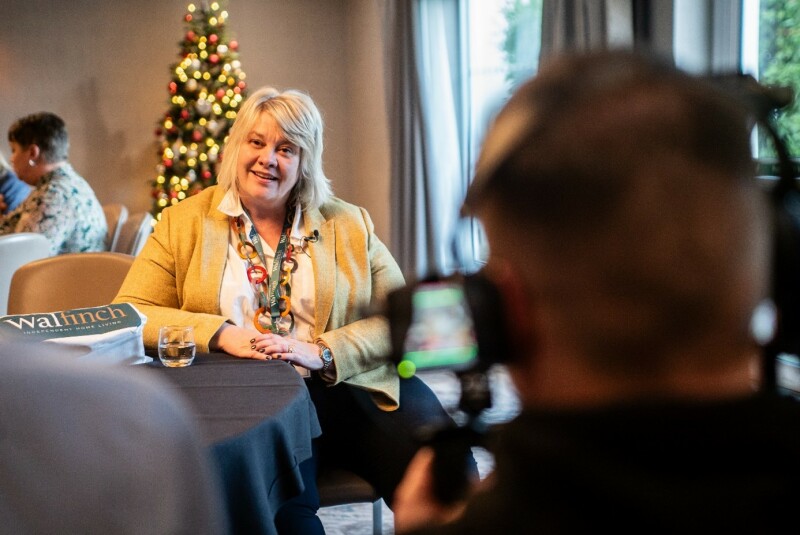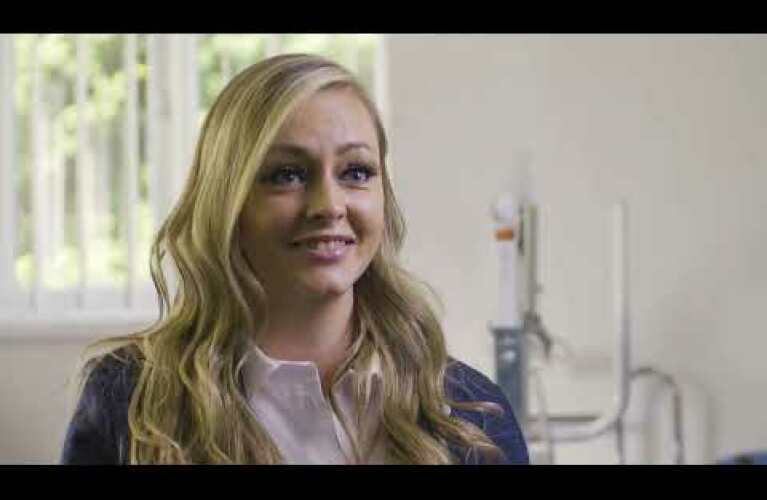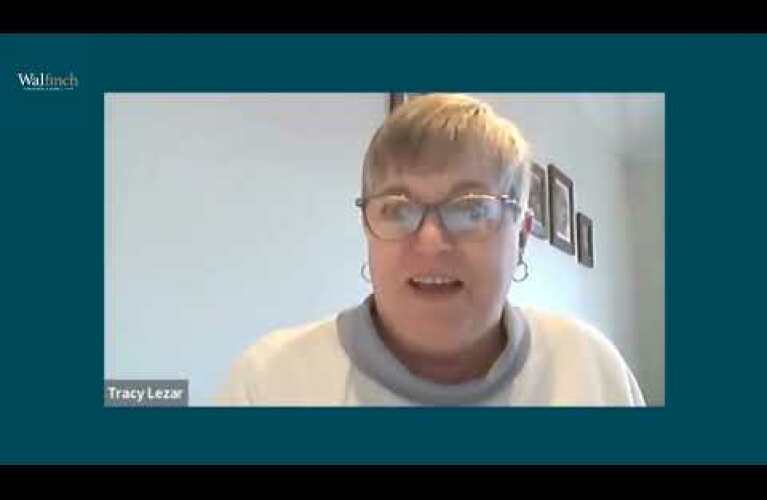Walfinch Franchise
Walfinch provides personalised, high quality home care. You don’t need care experience as you don’t do the care work yourself.
Franchise Information
9/10 people say that if they need care, they’d prefer to receive it in their own home.
An alternative to care homes, Walfinch franchisees address the need to remain independent at home.
Regulator Registration Made Easy
One of the biggest challenges when you’re setting up a home care business is getting your business registered with your regulator.
If you haven’t done this before, it can be a long and laborious process. Most franchisees didn’t work in the care sector before joining Walfinch, so didn’t have any experience of the registration process.
For example, Dimpu Boppuri, who runs Walfinch Milton Keynes and Bedford, worked in IT for Santander, Barclays, Mastercard, and other large financial institutions before joining Walfinch.
Dimpu got his Bachelor of Technology from Jawaharlal Nehru Technological University in Hyderabad in the early 2000s before getting a job with Barclays in Knutsford.
Since then, he’s had 2 children, one who loves to play cricket, and he’s had his own IT company too.
With no care experience, Dimpu didn’t know where to start when it came to getting his home care business registered with CQC.
This is where Walfinch come in. When you join, you’ll be supported by an experienced Quality and Compliance Manager whose job is to get you registered with your regulator as quickly as possible so you can start trading and focusing on growing your business.

What training and support does Walfinch provide franchisees?
Most Walfinch franchisees do not come from a care background, so your training is extensive and ongoing:
Initial Training:
- 5 day face to face programme for 2 directors, followed by 5 days online.
- Support registering your business with your regulator
- Help recruiting your first Registered Manager
- 8-week compliance training programme, with weekly 1 hour sessions
- Help finding your first office
- Business plan and launch strategy
- Support setting pay and charge rates
Ongoing Training:
- Annual support calendar including 10-12 online workshops, 3 face to face regional meetings for you, 3 for your Registered Manager, and an annual conference
- Support during regulator site visits
- Assistance buying additional territories
- Guidance on recruiting the right people
- Regularly reviewing KPIs to help you hit your targets
- Weekly marketing surgery
- Assistance selling your business when you’re ready
“When you are new to the industry, there is a lot of technical knowledge around care and assessments that you need to know. That’s why I chose to get into this sector with a franchise, and the training and support you get from the Walfinch franchise support team is very good.” - Sarah Wickham, Managing Director, Walfinch Suffolk Coastal, Walfinch West Suffolk, and Walfinch Norwich

Growing Need
You’ll be providing a much-needed alternative. Over 430,000 people live in care homes in the UK. Life expectancy for care home residents between 2021 and 2022 was just 7 years for people aged 65-69. Life expectancy for non-care home residents in the same age group was over 23 years, so your services will reduce the quick deterioration observed in care homes (ONS).
Not only that, 9 out of 10 people say that if they need care, they’d prefer to receive it in their own home.
You’ll have access to a growing and under-served market. The number of over 85s in the UK, the group most likely to need home care, was 1.6 million in 2018. By 2048, this is projected to rise to 3.5 million and 5.1 million by 2066 (ONS).
You’ll be in demand. Requests for care were 6% higher in 2021 than in 2015/16 and requests exceeded 2 million for the first time ever in 2022-2023 (The King’s Fund).
Your market is far bigger than just the elderly. There were 22.2% more requests for care from the working-age population in 2022 than in 2015/16 and 900,000 additional working-age adults were living with a disability in 2021 than in 2011 (Institute for Government).
You’ll have potential clients from the start. More than half a million people were waiting for adult social care in May 2022 and the proportion of those waiting more than 6 months reached 36.5% in March 2023 which is up from 20.2% in November 2021 (Home Care Association/Institute for Government).
You’ll be in demand all year round so you’ll experience continuous growth, and you’ll have multiple sources of income because you’ll be offering a range of specialist services to lots of different age groups including hourly visiting care and 24/7 live-in care.
Reach Your Professional and Financial Goals More Quickly
While there is vast opportunity to run a successful home care business, setting up any business alone is difficult.
You’ll face unexpected hurdles and things will not always go to plan.
When you set up a business with a franchise, it’ll still be tough at first, but you’ll have a support system in place to help you overcome any challenges much more quickly.
This support system means you’ll also reach your professional and financial goals more quickly.
The “Mum Test"
Everything we do at Walfinch is based around the “Mum Test” which is something Founder and CEO, Amrit Dhaliwal, came up with when he was a home care franchisee.
When deciding what care is best, how it should be delivered and who should deliver it, we always ask ourselves: “Would I like this for my own mum?” If the answer is no, we think again.
We believe that high quality care starts with our teams of carers – so we prioritise and support them with above-average pay and working conditions, which attracts and retains the best people. 8/10 carers remain with us year-on-year which is much higher than the care sector average.
Your Time, Your Terms
When you buy a franchise, you have full control of your own time.
Dhan Ramjuttun, who runs Walfinch Greater Manchester South with his wife Sham, was a Mental Health Nurse in the NHS for 25 years before joining Walfinch.
Dhan is from Mauritius and studied Health Care Management at Keele University in the 90s before forging a long and successful career in the NHS.
Dhan is into gardening, cycling, and football, and self-employment has given him the opportunity to do more of these things than he could when he was working in the NHS.
Franchising is about growing a successful business so you can do more of the things you want to do personally, as well as making a difference in your community.

How much does it cost to become a Walfinch franchisee?
Start-up costs can vary, but the minimum investment required is £100,000+VAT. This includes a franchise fee of £33,000+VAT.
You will need at least £39,600 of your own money to invest before borrowing.
The company also charges a management support fee (MSF) of 5% (plus VAT).
What’s the earning potential of a Walfinch franchisee?
On average, Walfinch franchisees exceed £1 million in turnover by year 4, with a healthy profit margin of around 20%.
FAQ
How long will it take to launch from the time I sign the franchise agreement?
Normally 3 – 4 months depending on things like CQC registration, finding an office and recruiting carers.
Will you help me with a business plan for the new business?
Yes. We will provide a business plan template and this will allow you to adjust key figures to ensure that it is ideally suited to your territory.
Are there any other costs I can expect?
Yes, other costs to budget for include a local office, local advertising, computer, office rent and working capital. Working capital will depend on how much money you need to draw from the business during the set-up of the business.
What is my expected break-even and how long should it take me to reach it?
The time to reach break-even is governed by how long it takes to find carers and clients for your business but our experience is that it normally takes anything from 12-18 months to achieve profitability.
Do I need any healthcare training or background to join Walfinch?
No, but a background in business and an understanding of how a business operates is desirable.
Will you help me find clients?
Yes, we train you to find your first 100 local contacts in your territory and provide training on the business development system. This enables you to find and retain key contacts in your area, who will keep referring clients to you.
How will I know what to charge clients?
Completing a local business plan will clarify the charges which reflect a fair hourly cost for Walfinch services. We help you with a territory review to understand pricing in the territory. This allows you to pay carers well and make a fair profit.
Is this opportunity full time or part-time?
Walfinch is a full-time management franchise opportunity. Initial franchisee training provides you with the know-how and support to set up and run a care business, as well as giving you an understanding of the care sector.
Are locations available? Could you help me choose a location?
We have territories available across the United Kingdom with strong demand for home care. It is possible to own and run more than one franchise with us.
CLICK BELOW TO REQUEST MORE INFORMATION ON THIS INCREDIBLE OPPORTUNITY!
| Year 1 | Year 2 | Year 3 | Year 4 | Year 5 |
| £319,000 | £585,077 | £852,800 | £1,050,944 | £1,227,936 |
Walfinch Bucks Welcomes New Carers with Expansion of Private Client Services
“Our new carers show just how wide an appeal a care career can have,” says Greg Renk, Managing Director of Walfinch Buckinghamshire. “It suits all kinds of people for a wide variety of reasons.
“Amarah recently joined us from a previous role working in residential care homes. She now values being out and about seeing the world and visiting clients in their own homes plus the attraction of shorter more flexible shifts. Rachel has joined us from a cleaning job and another new carer, Iqra, joined our team from a different care company because our pay and conditions are better too.”
Greg, who started the High Wycombe-based Walfinch home care service in December 2020, has built a team of 24 carers, but is looking for more, so Walfinch Bucks can double the number of clients they care for. Demand for private care services in particular has grown since the pandemic, as more people opt for home care over residential homes.
“Private client care visits are becoming more popular because they last a minimum of an hour, so carers have time for a chat, or to take people out for coffee, shopping trips or medical appointments. The time together means that clients and carers can get to know each other better, something that clients with scattered families value in particular,” says Greg.
Greg is looking for more people who are kind, personable, good communicators and keen to benefit their community. He adds: ”We offer a chance to be part of a happy team, who get out and about in their local area and make a real difference.” Full training and ongoing support are provided so you can make a professional career in care.


Ian Thompson | Why I Joined Walfinch


Sarah Wickham | Walfinch Franchisee Testimonial


Walfinch Franchise Testimonial | Greg Renk


Walfinch | The Franchise Opportunity


Tracy Lezar - Why Did You Choose Walfinch?






















